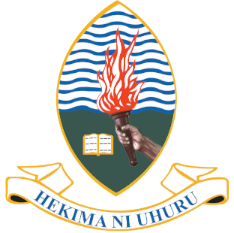Strengths and opportunities
Strengths
The reputation and success of our department originate from good governance and a strong team of staff, well-determined to drive vision and mission of the department. We have high-profile staff with experience and tracked records in research and publication, innovation, consultancy and community service, and teaching. Most of these staff are registered by reputable professional bodies, such as Tanzania Engineering Registration Board (ERB), Institute of Electrical and Electronics Engineers (IEEE), and Institution of Engineering and Technology (IET). They have offered extensive professional service locally and globally, increasing our visibility and reputation. In ensuring that we move with rapid technological changes, our staff have, from time to time, been supported by the University of Dar es Salaam (UDSM) or stakeholders to undertake industrial training for further intensification of their competency and skills.
The department has three well-established labs: 3D Solutions and Robotics, Electronics, and Telecommunications. These labs contain advanced equipment for teaching, learning, and research. Our goal is to help students transform theories from class into practical knowledge for addressing real-world challenges. Supervised by experts (lab engineers and instructors) from the department, students have been using lab facilities to conduct electronics and telecom experiments. They have, in addition, been developing working prototypes in their final-year projects. Furthermore, we have an electronics workshop for repair and maintenance of different types of electronics and telecom equipment (e.g., photocopier machines, printers, air conditioners, and refrigerators). Administered by experienced and certified technicians and engineers, this workshop has been useful to the surrounding community and university in general.
We have a diversity of degree programs at both undergraduate and postgraduate levels. Benchmarked with top universities, the programs allow mobility of students locally and across the region. This important quality makes our programs competitive, attracting many students with outstanding academic performance. Furthermore, the department offers several professional development programs in electronics and telecommunications. In some situations, we collaborate with industries or other units of UDSM to offer certification professional programs on emerging technologies, such as artificial intelligence, internet of things, and blockchain. For example, we collaborate with the Fiber Optic Association (FOA, https://www.thefoa.org) to offer three types of industry certificates: Certified Fiber Optic Technician (CFOT), Certified Premises Cabling Technician (CPCT), and Certified Fiber Optic Specialist/Home (CFOS/H). These certificates (CFOT, CPCT, and CFOS/H) attract local and international professionals in the fields of ICT. FOA is a worldwide not-for-profit organization that comprises of experts from fiber industries. In Tanzania, University of Dar es Salaam, through our department, is the only school approved by FOA to offer fiber certifications.
Furthermore, the department works closely with private companies and public institutions under the memorandum of understanding (MoU) established between these entities and UDSM. Focusing on strategic areas of interest, these MoUs have expanded our capability to address multidisciplinary problems. In collaboration with the College of Information and Communication Technologies (CoICT), the department and the entities have established co-working spaces to develop innovative solutions for the Tanzanian community. The spaces have been the cornerstone for students of the department to experiment their innovation ideas.
Opportunities
The department strongly believes in the collaboration and partnership with stakeholders, especially industries and institutions, to address pressing community problems. In this regard, we have a number of opportunities that you may engage us with:
- Co-creation of innovative ICT solutions for the local and international markets: you may collaborate with our experts (academics and researchers) and students to develop practical industrial products for the general community;
- Industrial (field) training of our staff and students: science and technology is rapidly growing with new innovative products entering the market nearly every day. Industries are undoubtedly at a forefront to quickly see and adopt the innovations. The department may, therefore, seize this opportunity by engaging her staff to your industry and receive professional training in state-of-the-art ICT technologies. This arrangement will equip staff with practical knowledge and skills to update their instructional materials. Subsequently, competitive graduates will be generated to match with industrial needs. Furthermore, our students may receive field training during their studies.
- Occasional visits of industrial experts and Adjunct Professors: UDSM, through the Industrial Advisor Board of CoICT, recognizes the importance of industry-academia collaboration. Therefore, UDSM has instituted mechanisms and policies to advance knowledge through visitations by industrial experts and Adjunct Professors. The department invites you to seize this opportunity.
- Sharing of laboratory resources for teaching, research, and consultancy: The department has well-established labs that may be suitable to meet the demands of stakeholders, including measurements and tests of electronics and telecom equipment. We also have experienced lab technicians and engineers that can offer professional lab services in all areas of electronics and telecom engineering.
- Part-timers: Depending on the needs and circumstances, the department may, from time to time, require part-timers in specific courses.
- Commercialization of our innovative products: For years, our staff and students have been generating many innovative prototypes with positive socio-economic impact to the community. Practical realization of this impact requires a joint effort between you and us, ensuring that these prototypes are converted into actual products for commercialization.
- Collaboration and partnership in all areas aligned with our vision: The department is open for discussion on any potential idea that supports her vision. Draft of the MoU may result from the discussion, and communicated to relevant UDSM organs for recommendation and approval.
- Co-supervision of undergraduate and postgraduate students: Based on relevant UDSM regulations and policies, we may engage industrial experts or professionals in the field to co-supervise our students together with staff from the department.
- Specific assignments: The department may engage professionals in our fields to undertake specific assignments, such as independent internal and internal examinations, review of curricular, and assessment of academic staff performance.
